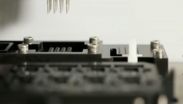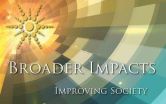(Press-News.org) Philadelphia, PA (November 14, 2014) -- The majority of individuals in the United States are not eligible to donate a kidney, even if they wanted to, according to a study that will be presented at ASN Kidney Week 2014 November 11¬-16 at the Pennsylvania Convention Center in Philadelphia, PA.
There is a shortage of living kidney donors in the United States, but no one has previously examined the general population to see who would be eligible to be donors. To assess the potential US donor pool, researchers led by Anthony Bleyer, MD (Wake Forest Baptist Medical Center) looked at a representative sample of the population and determined the proportion of people who could not be donors because of underlying health conditions. They also determined the number of individuals who fell below the poverty line and therefore might not be able to donate because of financial difficulties related to being away from work during recovery.
The investigators found that 55% of the population would not meet criteria to donate, mostly because of preventable health conditions (19% hypertension, 15% obesity, 11.6% excessive alcohol intake, 12% diabetes). Sixty percent of individuals with an adjusted income of $35,000 per year could not donate due to medical conditions vs. 49% of individuals making >$100,000 per year. If one includes non-US citizenship as criteria for not being able to donate, 68.5% of the US population would not be able to donate.
"The majority of individuals in the US cannot donate, and this is due to preventable health problems in many cases," said Dr. Bleyer. "Lower-income people need transplants more commonly, but individuals from these economic strata are less likely to donate because of more health problems, finances, and immigration status." Dr. Bleyer, a nephrologist and epidemiologist, worked with his son, Anthony Bleyer, Jr., an economics major at Wake Forest University, to develop and carry out the study.
Changes that could directly impact people's ability to donate include: providing compensation for lost work for individuals with lower incomes; addressing immigration issues; and improving the health of the population.
INFORMATION:
Study: "A Population-Based Study of the U.S. Population Shows the Majority of Persons Cannot Donate due to Preventable Diseases and Socio-Economic Conditions" (Abstract FR-OR089)
Disclosure information is available at
http://www.asn-online.org/education/kidneyweek/2014/program-faculty.aspx.
ASN Kidney Week 2014, the largest nephrology meeting of its kind, will provide a forum for more than 13,000 professionals to discuss the latest findings in renal research and engage in educational sessions related to advances in the care of patients with kidney and related disorders. Kidney Week 2014 will take place November 11-16, 2014, in Philadelphia, PA.
The content of this article does not reflect the views or opinions of The American Society of Nephrology (ASN). Responsibility for the information and views expressed therein lies entirely with the author(s). ASN does not offer medical advice. All content in ASN publications is for informational purposes only, and is not intended to cover all possible uses, directions, precautions, drug interactions, or adverse effects. This content should not be used during a medical emergency or for the diagnosis or treatment of any medical condition. Please consult your doctor or other qualified health care provider if you have any questions about a medical condition, or before taking any drug, changing your diet or commencing or discontinuing any course of treatment. Do not ignore or delay obtaining professional medical advice because of information accessed through ASN. Call 911 or your doctor for all medical emergencies.
Founded in 1966, and with more than 15,000 members, the American Society of Nephrology (ASN) leads the fight against kidney disease by educating health professionals, sharing new knowledge, advancing research, and advocating the highest quality care for patients.
Philadelphia, PA (November 14, 2014) -- Simple exercises can help improve the health of patients with kidney disease, according to studies that will be presented at ASN Kidney Week 2014 November 11¬-16 at the Pennsylvania Convention Center in Philadelphia, PA.
Heart disease is the leading cause of death in patients with chronic kidney disease (CKD). Because exercise capacity is significantly reduced in CKD patients, Sharlene Greenwood, MD (King's College Hospital, in London) and her colleagues examined the effect of 12 months of exercise training on kidney function ...
DARIEN, IL - A new study suggests that teen drivers who start class earlier in the morning are involved in significantly more motor vehicle accidents than peers with a later high school start time. The results underscore the importance of the "Awake at the Wheel" campaign of the National Healthy Sleep Awareness Project.
Results show that the weekday crash rate for teen drivers during the 2009 to 2010 school year was about 29 percent higher in Chesterfield County, Va., where high school classes began at 7:20 a.m., than in adjacent Henrico County, Va., where classes started ...
VIDEO:
What is Nutrigenomix? Here's a primer.
Click here for more information.
Researchers from the University of Toronto (U of T) report that personalized dietary advice based on a person's genetic makeup improves eating habits compared to current "one-size-fits-all" dietary recommendations. The findings were published online today in the journal PLoS One.
"We conducted the first randomized controlled trial to determine the impact of disclosing DNA-based dietary advice on ...
Each year, the National Science Foundation (NSF) receives about 50,000 proposals for research funding in all fields of science and engineering from all corners of the country. NSF distinguishes among the proposals through a competitive review process built on two criteria: intellectual merit and broader impacts--will the research advance knowledge and will it benefit society?
Today, NSF released a special report to showcase broader impacts and examples of the diverse and far-reaching ways NSF-supported science touches our lives.
"Intellectual merit and broader impacts ...
Baltimore, Md., November 14, 2014--Most research on spinal cord injuries has focused on effects due to spinal cord damage and scientists have neglected the effects on brain function. University of Maryland School of Medicine (UM SOM) researchers have found for the first time that spinal cord injuries (SCI) can cause widespread and sustained brain inflammation that leads to progressive loss of nerve cells, with associated cognitive problems and depression.
The research, published recently in two articles, one in of the Journal of Neuroscience, the other in Cell Cycle, ...
Boston (Nov. 14, 2014) - After two bombs exploded near the finish line of the Boston Marathon on April 15, 2013, acute trauma to the ears - such as ruptured eardrums - was immediately apparent to those caring for the victims. However, the full extent of the effect on the ears and hearing of victims was not fully recognized for weeks. In the end, more than 100 patients were evaluated for blast-related otologic injuries.
Almost immediately, Boston researchers set out to detail the types of otologic injury and report on the outcomes of patients undergoing otologic treatment. ...
BOZEMAN, Mont. - Hailstones from three Rocky Mountain storms formed around biological material, then bounced around the clouds picking up layers of ice, according to a new Montana State University study.
The discovery of a biological embryo extends previous findings about the formation of snow and rain, applies to hailstones globally and provides basic information about a little-studied topic, said the researchers who published their findings Nov. 6 in the Journal of Geophysical Research: Atmospheres.
"This is the first paper to really show that biological material ...
Researchers at Western University are using cutting-edge genetic mutation-analysis software developed in their lab to interpret mutations in tumour genome that may provide insight into determining which breast cancer tumours are more likely spread to other parts of the body and which ones won't.
Their findings are published today in the journal, Nature Scientific Reports.
"We are using a unique software program in our lab that looks at a type of mutation called a splicing mutation that is typically overlooked using current methods," said lead author on the study, Stephanie ...
Dartmouth researchers have developed a fluorescence imaging technique that can more accurately identify receptors for targeted cancer therapies without a tissue biopsy. They report on their findings in "Quantitative in vivo immunohistochemistry of epidermal growth factor receptor using a receptor concentration imaging approach," which was recently published in Cancer Research.
"Protein overexpression is a hallmark of certain cancers and is used in clinical oncology to personalize treatment through tumor detection, molecular therapies, and therapeutic monitoring," said ...
November 14, 2014 - While noninvasive alternatives are increasingly available, liver biopsy still provides essential information in some children with liver disease, according to a new position paper in the Journal of Pediatric Gastroenterology and Nutrition, official journal of the European Society for Paediatric Gastroenterology, Hepatology and Nutrition (ESPGHAN) and the North American Society for Pediatric Gastroenterology, Hepatology and Nutrition. The journal is published by Lippincott Williams & Wilkins, a part of Wolters Kluwer Health.
The position paper was ...

